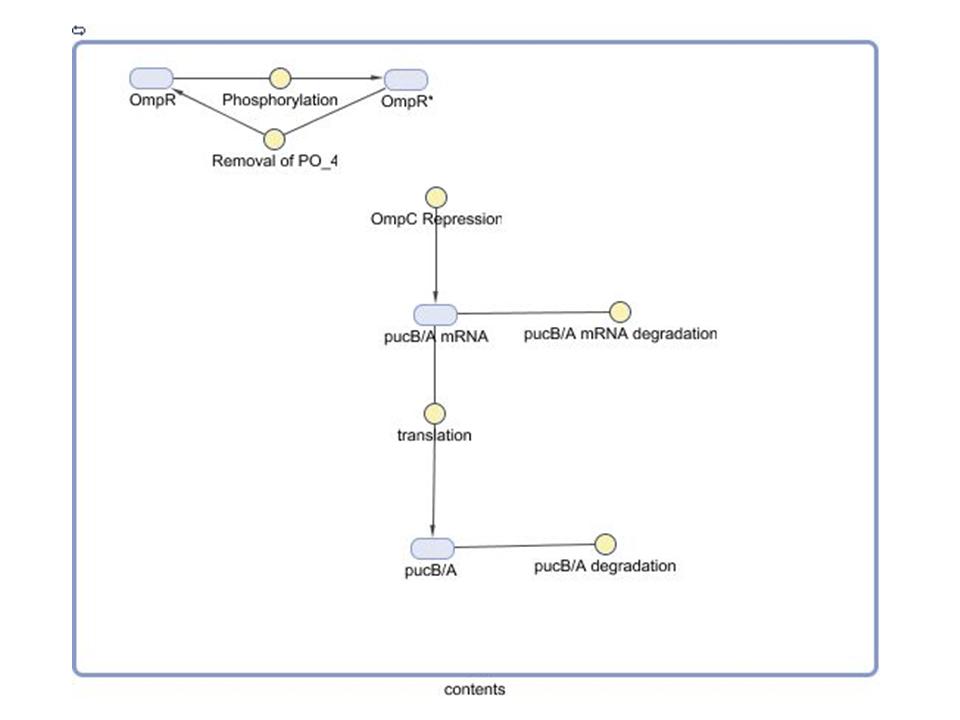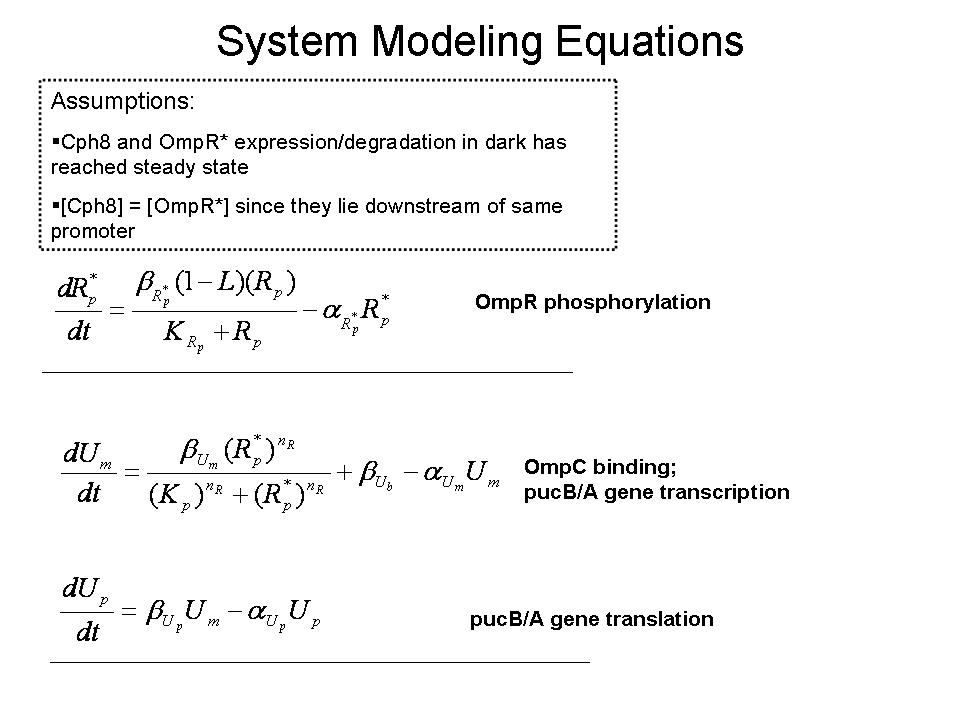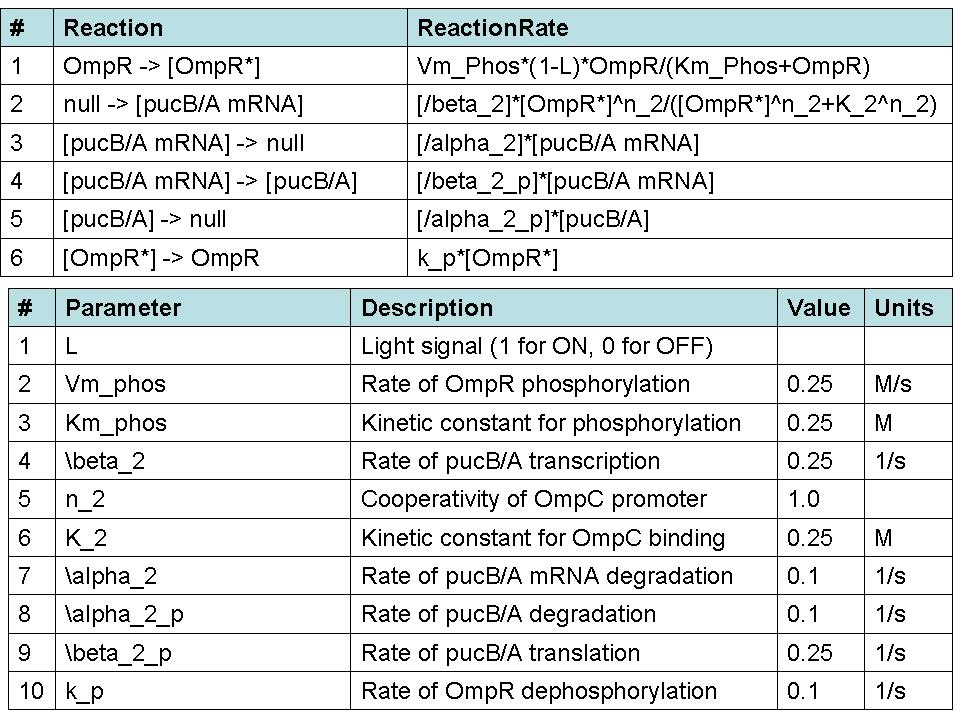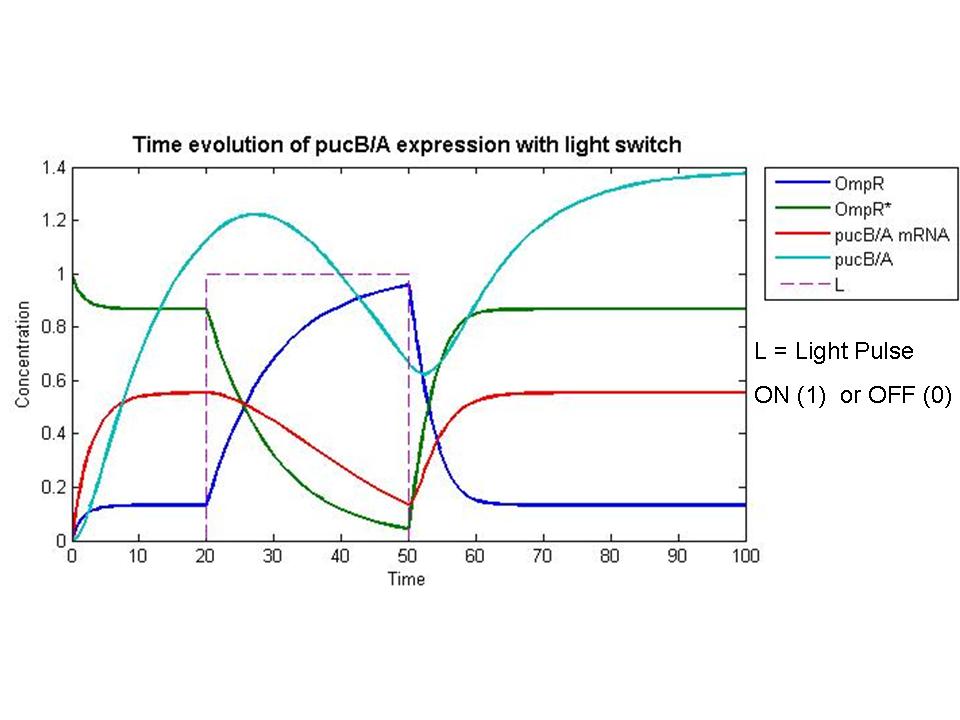Team:Wash U/French/Biological Parts
From 2009.igem.org
(Difference between revisions)
| (One intermediate revision not shown) | |||
| Line 123: | Line 123: | ||
| - | == ''' | + | == '''Caracterisation''' == |
[[Image:Slide2.jpg|480px]] | [[Image:Slide2.jpg|480px]] | ||
| Line 135: | Line 135: | ||
| - | ==''' | + | =='''Modelisation'''== |
<font size="2"> | <font size="2"> | ||
[[Image:pucBAModelDiagram.jpg|thumb|200px|pucBA Expression Model Diagram]] | [[Image:pucBAModelDiagram.jpg|thumb|200px|pucBA Expression Model Diagram]] | ||
| Line 149: | Line 149: | ||
:Component characterization steps and literature searches are underway in order to obtain quantitative parameters for the reaction rates. In order to simulate behavior of the system, putative values were included that exaggerate true concentrations and time scales. OmpR was given an initial concentration normalized to one, and all other components were assumed insignificant initially to this value. An ideal light pulse was introduced at an instant and removed thirty simulation seconds later. From this rudimentary simulation it can be drawn that the nonlinearities of the phosphorylation and transcription factor binding kinetics effectively smooth the sharp light input. By design, the light switch ON yields phosphorylation of OmpR and repression of the pucB/A genes which would give rise to LH2. Conversely, when left OFF, the concentration of pucB/A recovers and increases until the steady state determined by its translation and degradation rates. | :Component characterization steps and literature searches are underway in order to obtain quantitative parameters for the reaction rates. In order to simulate behavior of the system, putative values were included that exaggerate true concentrations and time scales. OmpR was given an initial concentration normalized to one, and all other components were assumed insignificant initially to this value. An ideal light pulse was introduced at an instant and removed thirty simulation seconds later. From this rudimentary simulation it can be drawn that the nonlinearities of the phosphorylation and transcription factor binding kinetics effectively smooth the sharp light input. By design, the light switch ON yields phosphorylation of OmpR and repression of the pucB/A genes which would give rise to LH2. Conversely, when left OFF, the concentration of pucB/A recovers and increases until the steady state determined by its translation and degradation rates. | ||
| - | + | '''References''' | |
1. Alon, Uri. <u>Introduction to systems biology and the design principles of biological networks</u>. Boca Raton, FL: Chapman & Hall, 2006. | 1. Alon, Uri. <u>Introduction to systems biology and the design principles of biological networks</u>. Boca Raton, FL: Chapman & Hall, 2006. | ||
Latest revision as of 14:10, 8 July 2009

 "
"








